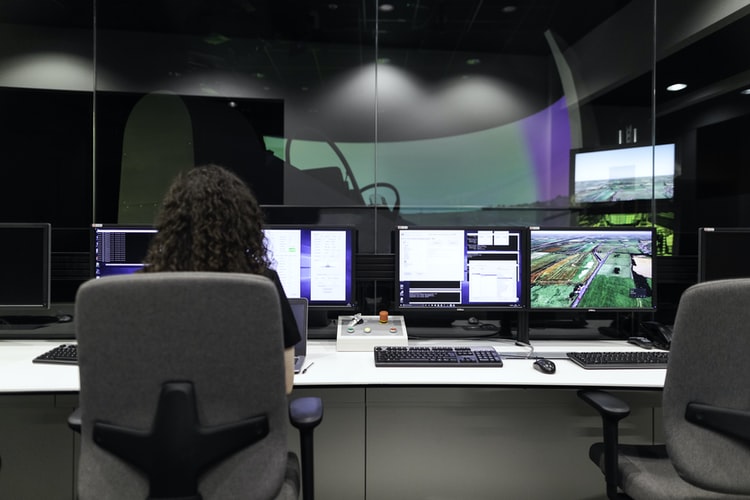Maintenance of aircraft is essential to air charter services and aviation in general. It ensures that the airplanes are in good condition and can fly safely. When your business is about air travel, safety is the topmost priority. After all, one key reason why people fly private jets is the assurance of a secure, well-maintained aircraft that meets the highest standards.
Unfortunately, some factors make this task difficult. Much of the needed information is collected manually. If that does not sound tedious enough, the data showing a plane’s history and condition are spread across up to 40 systems.
These systems are in the hands of multiple parties. So, one needs to contact them first in order to finish his data gathering. However, these parties could be competitors and could decline to share data. That makes the collection of data painstakingly long. Moreover, since some people refuse to share data, the information could be incomplete. Understanding how air charter companies safeguard data is essential in ensuring secure and efficient data management within the industry.
Now, that is still in the data-gathering process. There is still the proper maintenance process and, subsequently, the updating.
Slowing the process is not the only problem having no central clearinghouse of aircraft components causes. Mercenary part resellers could take advantage of airlines and MROs because of this.
Overall, this makes maintenance reactive. Therefore, when manufacturers or regulators require parts to be replaced, they find it hard to identify which planes are affected.
All of these can be solved using blockchain technology.
What Is Blockchain?
Blockchain is a Distributed Ledger Technology (DLT). In layman’s terms, it is a decentralized database managed by multiple participants. What makes the blockchain special is the addition of an immutable cryptographic signature called a hash. It ensures the manageability of the information in the ledger.
Additionally, blockchain records information using a method that completely prevents cheating, changing, or hacking the system. It also offers transparency, as every transaction on the blockchain should be known to all participants. Before anyone can add information to the blockchain, a general consensus must be reached between all members of the network. Otherwise, those transactions cannot be made. All the network members can also see the transactions and history of transactions recorded on the network.
Blockchain has a high degree of integrity and immutability. For that, it can act as a fair and square middleman that no one can sway or manipulate. This is one of the key benefits of blockchain in aviation, ensuring transparency and security in critical operations.
Using Blockchain To Solve The Problem
It would be beneficial if the aerospace industry stores information about airplanes on a blockchain. In contrast, having them in forty or so different systems will offer efficiency. No longer would they need to contact different parties. Instead, they will only need to check the digital ledger. All of them will have that privilege.
Moreover, the transparency the blockchain will provide would be most welcome. It will update the records each time a part is installed or removed from the airplane. On top of that, the blockchain can also capture how long the replaced part was in service. Additionally, the credentials, identity, and location of the technician can also be recorded.

With all this information on the blockchain, one can easily see the condition of the airplane.
Benefits Of Using Blockchain
The aerospace industry adopting blockchain technology would provide a more accurate view of a plane’s configuration and maintenance history. That comes with many other benefits.
-
Maintenance
As mentioned above, using blockchain technology would reduce time spent on routine inspections and maintenance. But aside from that, it will also allow predictive maintenance. Private aviation airlines can see the age of the parts installed on the airplane. With that, they can identify which would soon require supersession and schedule it in advance.
-
Finance
No business would not appreciate something that can help them save or earn money. Those in either the private aviation or commercial airlines industry are no exception.
With blockchain, they can build value on the secondary market. The verifiable maintenance records, updated in real-time, will allow them to extend the maintenance standards of jet engines to the whole aircraft.
Furthermore, they will be able to improve insurance. They can insure individual planes in a way that reflects the risk of each.
Aside from those, the records on the blockchain would allow them to inventory the parts of an aircraft without tearing them down. The same goes for assessing their condition. That will save companies a lot of money.
-
Biometrics
The identities of the individuals who interacted or serviced the plane can also be listed on the blockchain. Their credential status will also be included. That could be useful when something goes wrong or when one wants to know something about the changes. Remember, though, that only parties with appropriate permissions can do so.
Other Uses Of Blockchain In Private Aviation
Aside from the maintenance and keeping information about the planes, there are other possible blockchain applications in aviation.
Private aviation can use it to make its streamlined process even more convenient. For instance, private jet charter companies can use blockchain for identity verification. Normally, they would have to check the passenger’s credentials to see if they match what is on the manifest. That would require the passengers to present an ID. If they forgot, it could cause a delay in the departure. However, with blockchain, that would not be a problem. The biometric data and necessary documents can be stored on the blockchain network. When they arrive at the airport, they simply need to provide a verification code. Then, they can proceed.

Aside from that, blockchain technology would allow convenient automated payments and easy tracking of baggage and cargo.
These are just some things blockchain technology could offer the aviation industry. The best thing is, there are no drawbacks. Blockchain eliminates most of the aerospace industry’s problems and provides benefits on top of that.
Furthermore, like the aviation industry, blockchain technology is rapidly growing. As it evolves, more of its potential will be unlocked. That means private aviation can find more reasons to utilize the technology. Who knows, maybe with blockchain, travelers will be able to book and pay for private flights in just three taps or clicks. How amazing would that be?
Conclusion
The integration of blockchain technology into the aerospace industry has the potential to revolutionize how maintenance, security, and operations are handled. By offering a decentralized, transparent, and immutable ledger, blockchain eliminates inefficiencies caused by fragmented data systems, enhances predictive maintenance, and strengthens security protocols—all while cutting costs and improving operational efficiency.
For private aviation, the benefits extend even further. From seamless identity verification and secure automated payments to real-time tracking of aircraft components, blockchain provides a new level of reliability and convenience. As blockchain applications in aviation evolve, private jet travelers may soon experience an even more streamlined and secure flying experience, perhaps even booking and paying for flights in just a few taps using a private jet booking app for iOS or a private jet booking app for Android.
With the rising demand for private jets for rent, ensuring security, efficiency, and transparency in private jet booking is more critical than ever. If you’re ready to experience the future of seamless and secure private travel, let JetsOnset handle your next flight, giving you the peace of mind and luxury you deserve.

Recent Comments